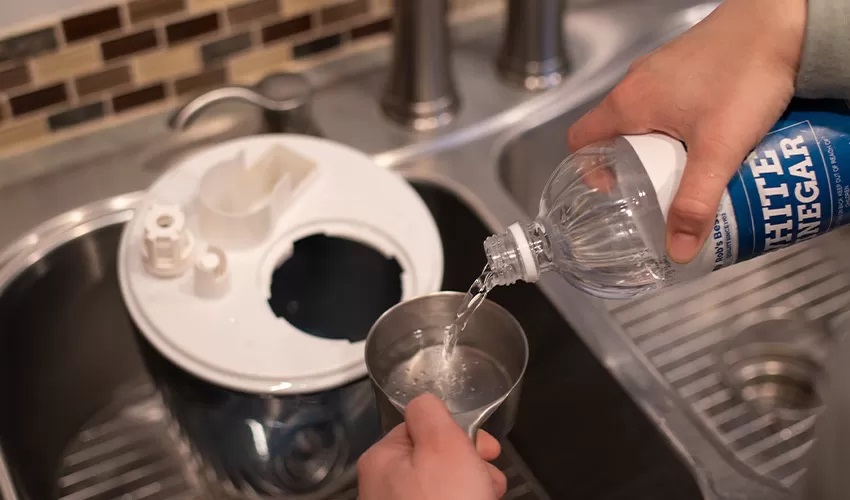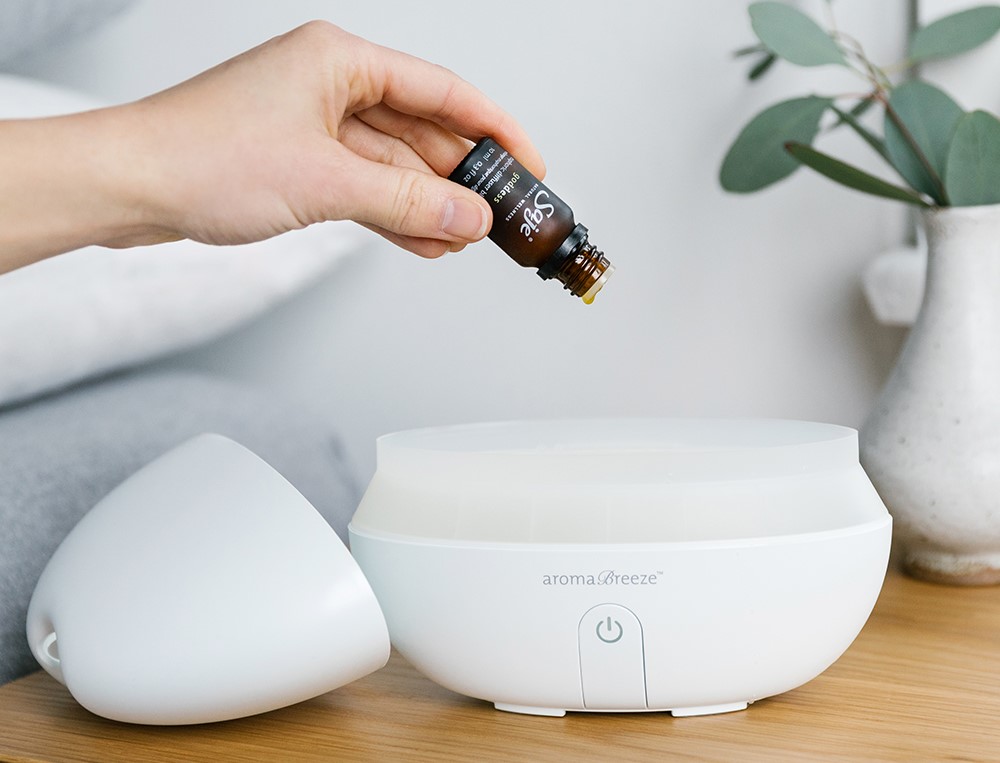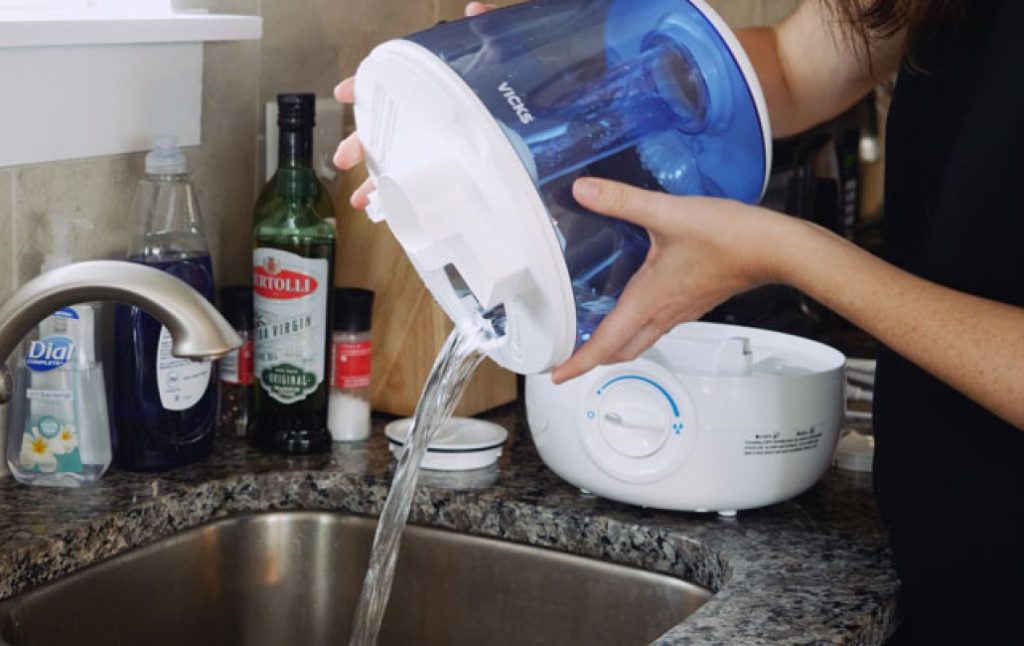

Pneumonia is a fairly common disease. Although more prevalent in infants and the elderly, it’s an illness that anyone can catch. Even with milder cases of pneumonia, the symptoms can be quite uncomfortable to live with, and the rhetoric that a humidifier may help is something you’ll encounter all over the internet.
However, there is some skepticism to these claims, which is probably why you’re here. By taking in the information below, you can finally find an answer to the question: Is a humidifier good for pneumonia? We look at why people think it can help and the authenticity of these claims in a few of the segments below.
Pneumonia affects the lungs and seeing as they are the organs responsible for respiration in the body, breathing problems are a likely side-effect. Statistics by the WHO Trusted Source Pneumonia WHO fact sheet on pneumonia provides key facts and information on causes, presenting features, economic costs, treatment, prevention and WHO response. www.who.int show that pneumonia takes the blame for up to 15% of deaths for children five years or younger. As such, there is evidence that it can be fatal, although, for most young people, it’s something they heal from fairly quickly.
Notably, healthy lungs consist of multiple alveoli (sack-like structures) that you fill with air when you breathe in. Here there is an exchange where oxygen is absorbed into your blood while carbon dioxide moves in the opposite direction. Pneumonia becomes a problem since it fills these alveoli with either pus or fluid. Consequently, the alveoli’s ability to fill up with air or conduct this exchange of gases is limited.
The resulting symptoms of the illness include a cough, fever, chest pain, mucus in your coughs, chills. Others like nausea, sweats, diarrhea, vomiting, tiredness, and headaches are less common, but they do happen depending on the severity.
Also, not all pneumonia illnesses are the same. There are a few different variations that you might encounter, and this is often related to the cause of the disease. As such, it’s safe to assume that there are varying causes for pneumonia as well that we look into in the next section.
Pneumonia could be caused by one of four reasons: bacteria, aspiration, fungal infections, or viruses. Viruses and bacteria seem to be the most prevalent of the four causes. More often than not, a bacterial pneumonia infection attacks when your immune system is weakened. Consequently, it’s pretty standard for you to get pneumonia right after a cold or some other type of respiratory infection.
The resulting illness is aggressive and may be tricky to treat, but most people pull through with a bit of antibiotic help prescribed by the doctor. Also notable is that the affected alveoli will likely be in one section of the lung.
Viral pneumonia isn’t as receptive to antibiotics. It may also attack even if your immune system is in tip-top shape. More than half the time, it tends to be mild. Nevertheless, if you get a bad case of viral pneumonia, there’s the risk of it being severe and ultimately fatal.
Some of the fungi in the US are also responsible for pneumonia. Some examples include Pneumocystis, Cryptococcus, or Aspergillus. Like bacterial pneumonia, fungal pneumonia will likely attack when your immune system is weak. These fungi are not widely spread, and hence fungal pneumonia is relatively rare.
Lastly, there’s pneumonia caused by aspiration. The lungs are not supposed to host any foreign materials such as food, liquids, or even saliva. If these materials bypass the protective systems in your body that prevent anything other than air from getting into your lungs, it could spell trouble.
These particles may get infected and wreak havoc in your lungs, thereby causing pneumonia.
Like most other diseases in the modern world, you can take proactive preventive measures to reduce the chances of contracting pneumonia. One somewhat overlooked option is getting your annual flu shots on time.
As we stated above, it’s common for pneumonia to hit right after a flu. This is because your immune system is exhausted and unable to fight off the bacteria that cause the infection. Consequently, by vaccinating yourself against the flu, you also gain protection from some variations of pneumonia.
Keeping clean is also quite effective. If you’re keeping clean, there are fewer chances of you coming into contact with pathogens that might cause pneumonia. Even something as simple as using sanitizers or washing your hands with hot water and soap can go a long way. This is especially true if you come into contact with pneumonia patients because it is transmissible.
You could avoid this situation altogether by keeping away from sick people. Nevertheless, this is not an excuse to avoid a clean lifestyle.
Another preventive measure is living a healthy lifestyle, especially with things that affect your immune system. Ensure you get enough sleep, work out, and eat healthy.
With a robust immune system, you can easily fend off some pneumonia variations even if they attack. It’s long been established that smoking is also detrimental to the health of your lungs. As such, if you’re a smoker, you’re more susceptible to the disease than most.
Lastly, get some pneumonia vaccines. According to the
American Thoracic Society,
Trusted Source
Top 20 Pneumonia Facts-2019
1. Pneumonia is an infection of the lung. The lungs fill with fluid and make breathing difficult. Pneumonia disproportionately affects the young, the elderly, and the immunocompromised. It preys on weakness and vulnerability.
www.thoracic.org
vaccines are available for a few pneumonia causes, and they’re recommended for those at a higher risk of contracting the disease. Nevertheless, these vaccines are not many and don’t cover nearly enough causes. That said, you do reduce your chances of contracting pneumonia by a lot when you get one.
Once you’ve contracted pneumonia, you have no other choice but to treat it. Since bacterial pneumonia responds positively to antibiotics, you might have to take some for a while as you recover. Ensure they’re prescribed by a licensed and practicing physician to get the best results.
Also, something we mentioned above is how viral pneumonia is unreceptive to antibiotics. In this case, most of the prescribed meds are usually for managing the symptoms. Since viral pneumonia is typically mild, you’ll only need to worry about lowering your fever, relieving or eliminating some of the pain, easing your cough, and ensuring comfort. That way, you can rest easy and recover.
However, as with the antibiotics, you don’t just take drugs all willy-nilly. Something like suppressing your cough using medication may be counterproductive as sometimes this is what your lungs need to clear some of the fluids.
For fungal pneumonia, antifungal medications seem like the proper countermeasure.
Most cases of pneumonia won’t require hospitalization but some will. For those that allow you to forego hospitalization, an easier time breathing in and out could be essential in your rest and recovery period. Since optimum humidity levels are necessary for this, it might be worth looking into and investing in something like an ultrasonic humidifier.
Users recommend the LEVOIT Ultrasonic Air Vaporizer for Home, especially for those with larger bedrooms. It’s easy to clean, which is necessary, especially if you’re using it while you have pneumonia. You can also control it via remote from your bed as you rest.
Other home remedies like taking vitamin C from citrus fruits can help push you through the last mile to recovery.
Before looking into how a humidifier can help, there’s one other detail we need to look into. We’ve already mentioned that some types of pneumonia will require bed rest, maybe some medication, and a boost to your immune system. That said, there is another variation aptly named “walking pneumonia.” If you go to the doctor, you might hear it being referred to as “atypical pneumonia.”
It’s not some exotic variation of the disease. However, it’s so mild that some people either don’t notice, or they can live with the few symptoms in their everyday routine. Often the cause can be traced back to Mycoplasma pneumonia bacteria. Given that it’s a bacterial variation, the same rules apply, and you can get rid of it using antibiotics.
Now, back to the humidifier’s role. One thing that’s likely to affect your comfort levels negatively is the low humidity levels in the room. Dry air, especially when it’s cold, tends to irritate both your airways and lungs. Consequently, your airways react by getting narrower, making it more of a hassle to breathe in.
Furthermore, by irritating your lungs, dry air causes shortness of breath and wheezing. This doesn’t seem like comfortable rest, which is necessary throughout the healing process. It might even exacerbate walking pneumonia symptoms to the point where it seems like a much more severe illness.
This is where the humidifier comes in. Whether it’s a warm mist or cold mist humidifier doesn’t matter. What matters is that you can adjust the humidity levels in the room, so you’re breathing in moist air. Consequently, you both moisten your airways and eliminate the wheezing and coughing that’s caused by dry air in your lungs.
After the humidifier has done its job, you’ll find breathing in and out to be much easier, which will allow you more comfort as you rest. Also, even in typically humid regions, the air may be much drier during winter than usual because cold air tends to have less capacity for moisture. Consequently, the humidifier may be handy in boosting humidity levels.
The humidifier also lets you avoid aggravating what would typically be the mild symptoms of walking pneumonia.
In summary, the short answer to the “Is a warm or cool mist humidifier good for pneumonia?” question is yes. However, there’s also the other side of this coin that we have to explore below.
Can a humidifier cause pneumonia? The short answer for this is also yes. Here’s the long answer. Water is a good breeding ground for bacteria. It also supports the growth of fungi and mold, especially if it’s left stagnant for too long.
This means that you need to be careful with how long you leave water in the humidifier’s water tank. You might think it’s empty, but the little droplets left after most of the water is used up are also problematic.
Notably, we highlighted both bacteria and fungi as some of the causes of pneumonia. As such, if they’re in the water in your humidifier’s reservoir, they put you at a higher risk of getting sick.
The type of humidifier does matter. A cool-mist humidifier, for instance, will release droplets of water into your breathing air. These droplets will contain all the micro-organisms that were in the water tank. As such, if it’s water that has been there more than a few days, then it becomes a problem.
As for warm-mist humidifiers, they produce and release steam into the air by heating it. Consequently, the micro-organisms and impurities are left in the tank even if you used tap water. However, that doesn’t change the fact bacteria breed faster in warm water, and they might eventually get into your air supply.
While the bacteria and micro-organisms in the water tanks are certainly a problem, they’re one you can solve by being proactive. Don’t go more than three days without cleaning the reservoir and other areas of the humidifier that come in contact with the water.
Also, use a 10% bleach solution for the job. Once done, remember to rinse the components in the machine; otherwise, you may be breathing in bleach when you use it the next time. Alternatively, you can drop Antimicrobial Humidifier Treatments into the tank so you can go longer without having to clean it.
According to reviewers, Guardian Technologies GGHS15 Aquasticks are well suited to cleaning humidifier tanks. One stick works for one gallon of water, and they’re also effective against mold. Additionally, they only need to be replaced once every 90 days.
Is a humidifier good for pneumonia? It can be if used the correct way, inclusive of a regular cleaning schedule and using distilled water. However, this doesn’t mean it helps cure the illness. All it does is ensure optimum comfort, so your body and immune system have more energy to fight off the disease. Also notable is that breathing in dry air can cause discomfort even if you’re not sick. As such, always having a humidifier on hand might come in handy.





